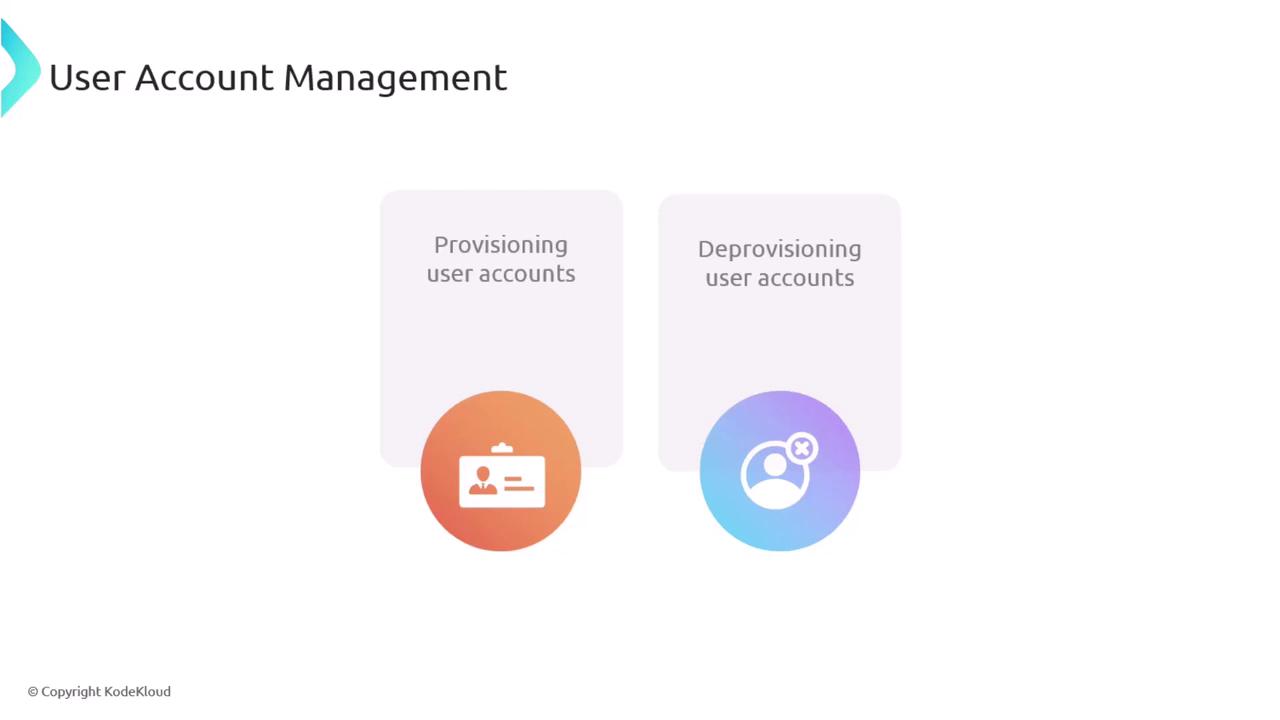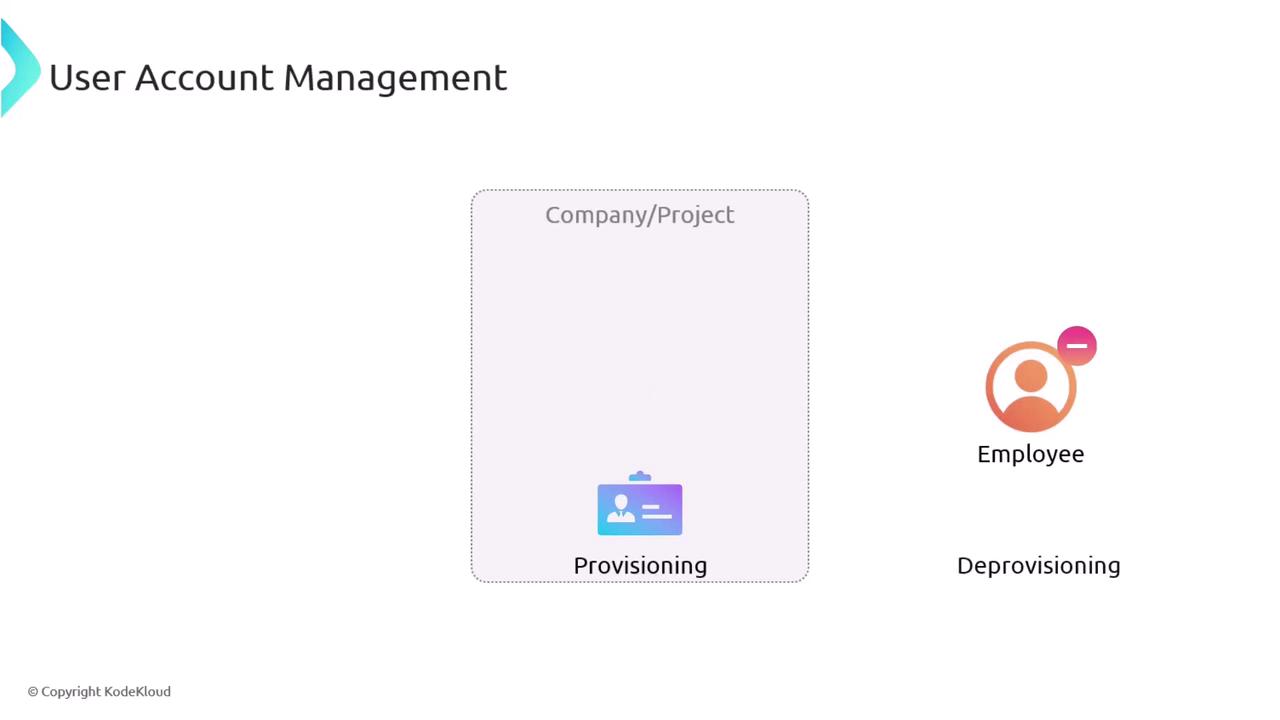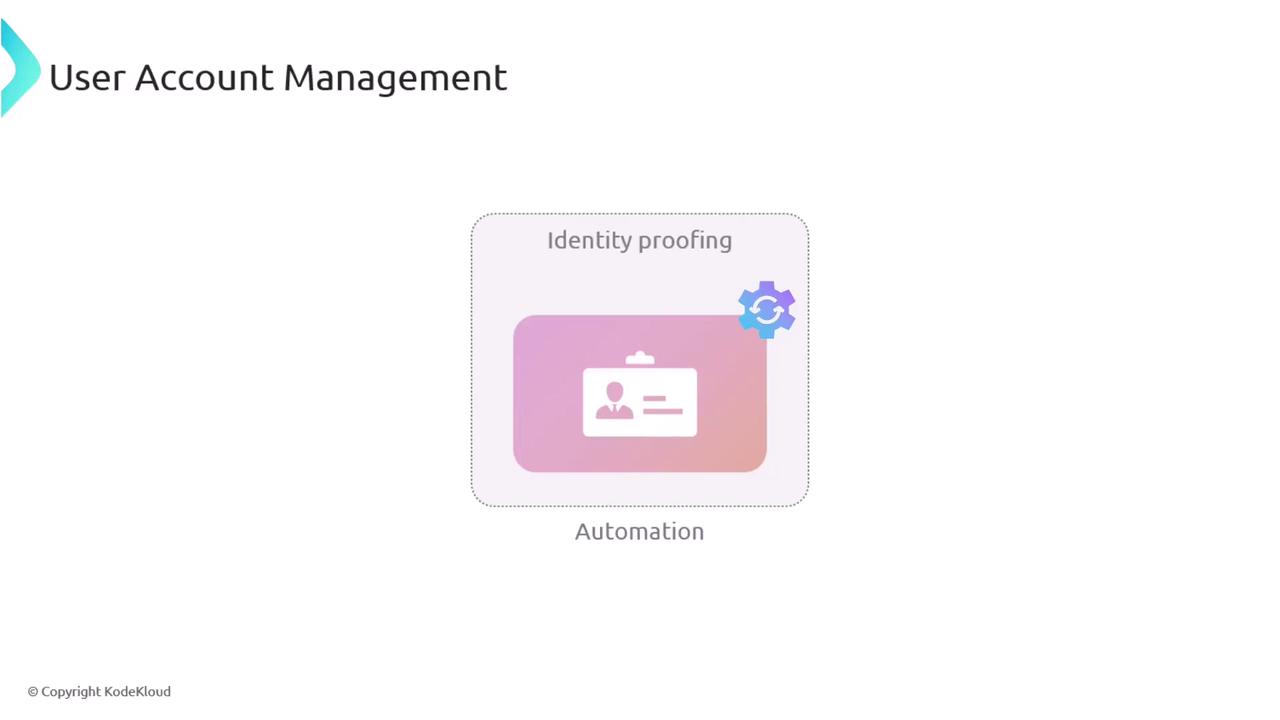CompTIA Security+ Certification
Security Operations
Identity and Access Management
In this article, we dive into the essentials of managing user accounts—a core element of Identity and Access Management (IAM). User account management spans from provisioning accounts for new users to deprovisioning them when they no longer require access.
Key Insight
Provisioning begins when a new hire or project user is onboarded, while deprovisioning is executed when an individual leaves an organization or a project.
Provisioning User Accounts
Provisioning involves setting up user accounts by following a standardized checklist. This ensures that new employees or project users receive the appropriate permissions based on their roles. One critical step during provisioning is identity proofing, where official documents and records are used to confirm the user's identity. Automation plays a key role in this phase, efficiently managing large volumes of accounts while ensuring consistency in processes.

Deprovisioning User Accounts
Deprovisioning involves revoking access rights and removing allocated resources from users who no longer require them. This step is essential for maintaining security, especially when an employee leaves a company or is removed from a project.

Enhanced Processes with Automation and Identity Proofing
By integrating automation into the provisioning process, organizations can manage user accounts with greater speed and accuracy. Automated systems also help in maintaining a reliable and repeatable workflow for assigning the right access privileges. Identity proofing further secures the process by ensuring that every user account corresponds to a verified individual.

Remember
Maintaining a robust IAM system not only enhances security but also streamlines user management and resource allocation. Ensure that each step, from provisioning to deprovisioning, is executed with precision.
Watch Video
Watch video content